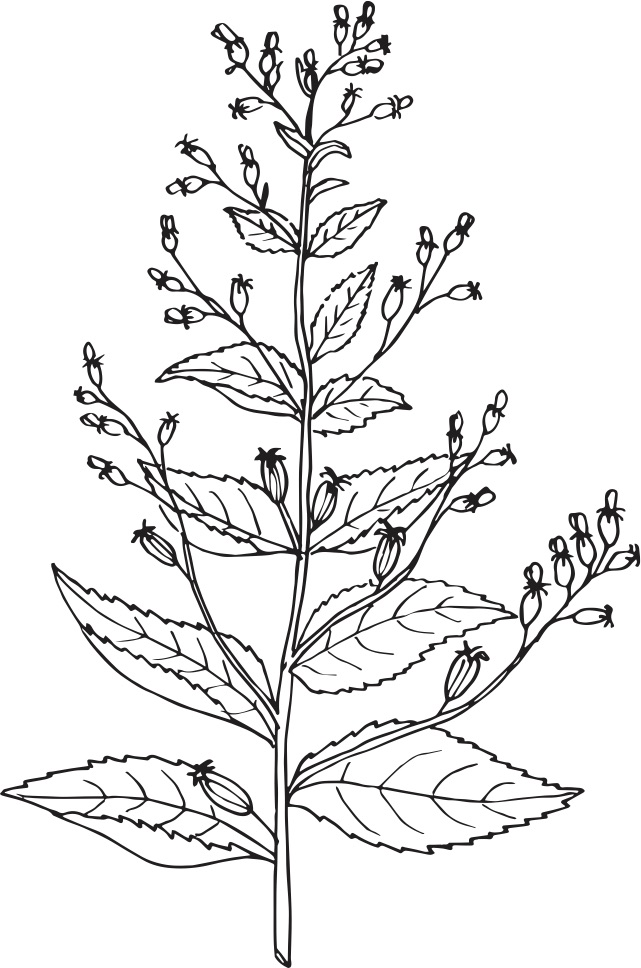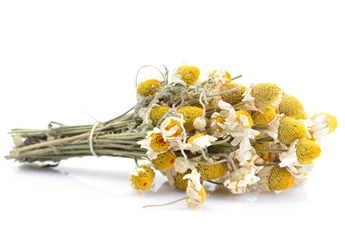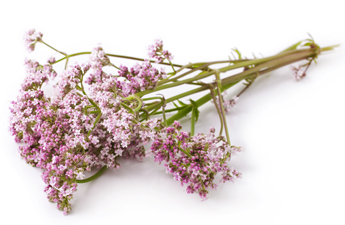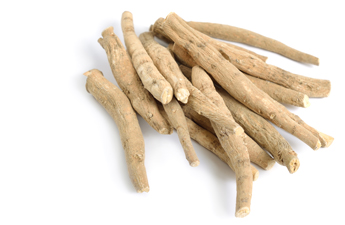Botanical name: Lobelia inflata.
Other names: Indian tobacco
Lobelia is native to North America where it has been used traditionally for asthma, allergies, whooping cough, congestion, and bronchitis (for its expectorant and antispasmodic effects). It has also been used for tobacco withdrawal as a herbal remedy to quit smoking. In fact, Lobelia is commonly known as ‘Indian Tobacco’ as the native people traditionally used it as a smoking herb, and alternative to tobacco (yet it is non-addictive).
Lobelia contains lobeline which is believed to have a chemical make up similar to nicotine. Studies have found lobeline to stimulate the release of dopamine, a brain chemical that plays a key role in producing feelings of pleasure and well-being. Perhaps this is why it has also been used to assist in quitting alcohol as well, as most addictive behaviours involve dopamine. Recent studies have found lobeline to show promise in the treatment of depression.
Due to the potential toxicity of the active constituent lobeline, THIS HERB IS NOT SOLD FOR INTERNAL USE IN AUSTRALIA. In high doses, lobelia can induce vomiting, and this effect was even used by the North American eclectics as a means to cleansing the body. (Lobelia is still used internally in other countries as a low dose botanical, usually under the guidance of a herbalist or naturopath).
Topically, Lobelia is used to soothe muscle pain, treat insect bites and ringworm, and promote the healing of bruises and sprains.
Preparation: As a smoking herb, use in a blend with other alternative smoking herbs. Slowly replace your tobacco or cannabis with the Lobelia blend until you no longer feel the need to smoke.
(Outside Australia: Lobelia can be taken internally as a tea or tincture in low doses under the guidance of an herbalist or naturopath.)
References:
Stead LF1, Hughes JR. “Lobeline for smoking cessation.” Cochrane Database Syst Rev. 2012 Feb 15;2:CD000124.
Farook JM1, Lewis B, Gaddis JG, Littleton JM, Barron S. “Lobeline, a nicotinic partial agonist attenuates alcohol consumption and preference in male C57BL/6J mice.” Physiol Behav. 2009 Jun 22;97(3-4):503-6.
McChargue DE1, Collins FL Jr, Cohen LM. “Effect of non-nicotinic moist snuff replacement and lobeline on withdrawal symptoms during 48-h smokeless tobacco deprivation.” Nicotine Tob Res. 2002 May;4(2):195-200.
Roni MA1, Rahman S. “Antidepressant-like effects of lobeline in mice: behavioral, neurochemical, and neuroendocrine evidence.” Prog Neuropsychopharmacol Biol Psychiatry. 2013 Mar 5;41:44-51.

Lobelia Common Uses
Lobelia Actions
Lobelia Recipes
Lobelia Precautions
Due to the potential toxicity of the active constituent lobeline, THIS HERB IS NOT SOLD FOR INTERNAL USE IN AUSTRALIA. In high doses, lobelia can induce vomiting, and this effect was even used by the North American eclectics as a means to cleansing the body. (Lobelia is still used internally in other countries as a low dose botanical, usually under the guidance of a herbalist or naturopath).
Buy Lobelia online from the Happy Herb Co
![]()
Australia’s biggest range
![]()
25 years of customer satisfaction
![]()
Fast International delivery
![]()
100% secure online ordering

 Nextwave
Nextwave

